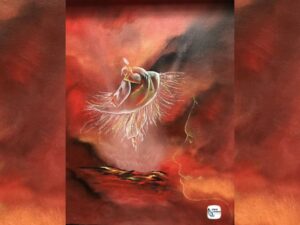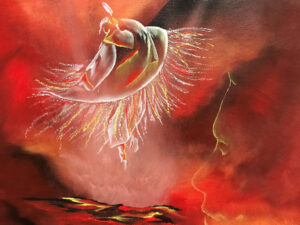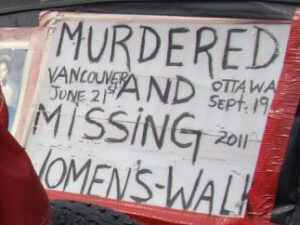Stakeholders
Families/Loved Ones
The following are profiles of some of the families and loved ones of missing and murdered Indigenous women and girls who are speaking out publicly. This list will continue to grow. If there is someone you think should be added, please contact us at info@kairoscanada.org.
- Mag Cywink is the sister of Sonya Cywink amnesty Whitefish River First Nation woman who was killed outside of London. Ms. Cywink’s concern is that family members may not be ready or able to speak to the inquiry; that they may not have worked through their grief or may be re-traumatized through the process. Quoted in this CBC article.
- Gladys Radek is Gitxsan-Wet’suwet’en, First Nations woman. Ms. Radek’s niece, Tamara Chipman, disappeared in 2005 along Highway 16 in northern British Columbia. Following her niece’s disappearance she became an activist, raising awareness about missing and murdered Indigenous women and seeking justice and accountability for their families. She co-founded the Walk4Justice, a campaign to raise awareness and seek justice for victimized women. Ms. Radek was named one of CBC’s top 50 Champions of Change in 2010 for her activist work.
- Bridget Tolley is Algonquin from the Kitigan Zibi Anishinabeg in Quebec, Canada. Her mother, Gladys Tolley, was struck and killed by a police car in October 2001 She is an activist with Families of Sisters in Spirit and also engages in social justice activities related to police violence.
- Holly Jarrett is the cousin of Loretta Saunders who was murdered in Halifax in 2014. She started the viral social media campaign “Am I Next?“.
- Lorelei Williams started a dance group made up of mostly family members called Butterflies in Spirit that pays respect to victims and raises awareness. Her aunt, Belinda Williams, and her cousin Tanya Holyk are among the missing and murdered.
Indigenous National Organizations and Communities
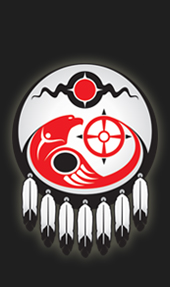 Assembly of First Nations (AFN) is a national organization that advocates to advance First Nations priorities and objectives and engage in relationship building with the Government of Canada. AFN represents more than 900,000 citizens in 634 First Nations communities, as well as cities and towns in Canada. AFN Women’s Council ensures that the concerns and perspectives of First Nations women inform the work of the AFN.
Assembly of First Nations (AFN) is a national organization that advocates to advance First Nations priorities and objectives and engage in relationship building with the Government of Canada. AFN represents more than 900,000 citizens in 634 First Nations communities, as well as cities and towns in Canada. AFN Women’s Council ensures that the concerns and perspectives of First Nations women inform the work of the AFN.
- AFN has stressed the importance of having First Nations input into the design of the inquiry.
- AFN and AFN Women’s Council have put forward recommendations based on input from pre-inquiry forums. On Feb. 15, 2016 they submitted a report to the Federal Ministers responsible for the Inquiry. The recommendations include: a need to address the underlying socio-economic, political and historic factors that have contributed to violence against Indigenous women in all areas of Canada; assessment of previous inquiry recommendations; to examine police practices; to ensure a safe forum for women and families have to share their experiences. A summary of their recommendations, including six bullet points.
- AFN’s position paper “Coordinated and Urgent Action to End Violence Against Indigenous Women and Girls – Towards a National Action Plan”. (see reports section for a complete list of all reports)
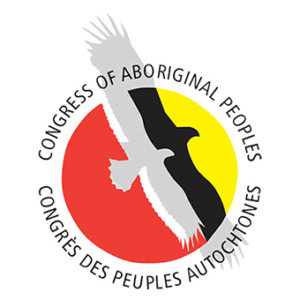 Congress of Aboriginal Peoples (CAP) represents the interests of Métis, off-reserve status and non-status Indians, and Southern Inuit Indigenous Peoples. It serves as the national voice for provincial and territorial CAP organizations.
Congress of Aboriginal Peoples (CAP) represents the interests of Métis, off-reserve status and non-status Indians, and Southern Inuit Indigenous Peoples. It serves as the national voice for provincial and territorial CAP organizations.
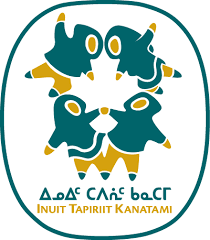 Inuit Tapiriit Kanatami (ITK) is a national organization that represents Inuit peoples living in Inuvialuit Settlement Region (Northwest Territories), Nunavut, Nunavik (Northern Quebec), and Nunatsiavut (Northern Labrador). There are 55,000 Inuit living in 53 communities.
Inuit Tapiriit Kanatami (ITK) is a national organization that represents Inuit peoples living in Inuvialuit Settlement Region (Northwest Territories), Nunavut, Nunavik (Northern Quebec), and Nunatsiavut (Northern Labrador). There are 55,000 Inuit living in 53 communities.
- ITK stresses that the issue of MMIWG is a Canadian issue, not just an issue for Aboriginal peoples.
- ITK has identified priority issues that must be addressed: physical violence in the home; colonization; impact of residential schools; unresolved trauma and abuse; hidden homelessness and lack of “safe and stable housing”
- Inuit delegates to the National Roundtable endorsed the Framework for Action to Prevent and Address Violence Against Indigenous Women and Girls
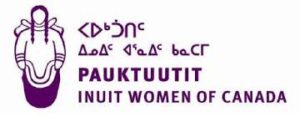 Pauktuutit Inuit Women of Canada is a national organization that “fosters greater awareness of the needs of Inuit women, advocates for equality and social improvements, and encourages their participation in the community, regional and national life of Canada.” Pauktuutit believe the issue of missing and murdered Indigenous women is a priority. They also believe there is a need for more Inuit specific work on the issue particularly related to remote and isolated communities.
Pauktuutit Inuit Women of Canada is a national organization that “fosters greater awareness of the needs of Inuit women, advocates for equality and social improvements, and encourages their participation in the community, regional and national life of Canada.” Pauktuutit believe the issue of missing and murdered Indigenous women is a priority. They also believe there is a need for more Inuit specific work on the issue particularly related to remote and isolated communities.
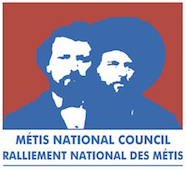 Métis Nation consist of Métis communities within the Métis Nation Homeland which includes Manitoba, Saskatchewan, Alberta, parts of Ontario and British Columbia, NWT and Northern United States. Metis National Council represents Métis Nation and is mandated by Métis Nation’s governments. Métis Nation hosted a pre-inquiry consultation meeting Feb. 19-21, 2016 to engage Metis people and family members of missing and murdered women and develop recommendations for the Inquiry. A press release on the Métis Nation website quotes President Chartier, “The Métis Nation welcomes this concerted action by all jurisdictions to deal with violence against Indigenous women and girls. Our governments and communities work tirelessly to improve the lives of our people and require active and ongoing support in their endeavors to achieve community safety and security.”
Métis Nation consist of Métis communities within the Métis Nation Homeland which includes Manitoba, Saskatchewan, Alberta, parts of Ontario and British Columbia, NWT and Northern United States. Metis National Council represents Métis Nation and is mandated by Métis Nation’s governments. Métis Nation hosted a pre-inquiry consultation meeting Feb. 19-21, 2016 to engage Metis people and family members of missing and murdered women and develop recommendations for the Inquiry. A press release on the Métis Nation website quotes President Chartier, “The Métis Nation welcomes this concerted action by all jurisdictions to deal with violence against Indigenous women and girls. Our governments and communities work tirelessly to improve the lives of our people and require active and ongoing support in their endeavors to achieve community safety and security.”
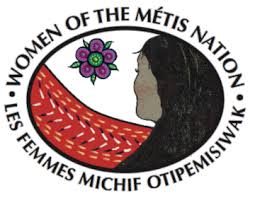 Women of the Métis Nation (WMN) Les Femmes Michif Otipemisiwak operates as Women of the Métis Nation. WMN represents the interests, and provides a voice for Métis women.
Women of the Métis Nation (WMN) Les Femmes Michif Otipemisiwak operates as Women of the Métis Nation. WMN represents the interests, and provides a voice for Métis women.
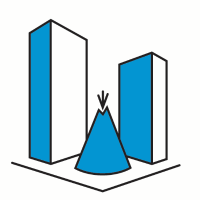 National Association of Friendship Centres is a network of 118 Friendship Centres and seven Provincial and Territorial Associations (PTAs) from coast-to-coast-to-coast.Friendship Centres are Canada’s most significant off-reserve Indigenous service delivery infrastructure and are the primary providers of culturally enhanced programs and services to urban Indigenous residents.
National Association of Friendship Centres is a network of 118 Friendship Centres and seven Provincial and Territorial Associations (PTAs) from coast-to-coast-to-coast.Friendship Centres are Canada’s most significant off-reserve Indigenous service delivery infrastructure and are the primary providers of culturally enhanced programs and services to urban Indigenous residents.
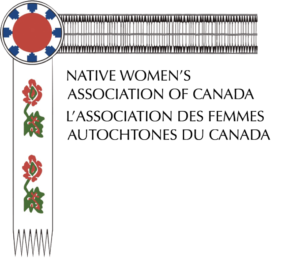 Native Women’s Association of Canada (NWAC) is a National Aboriginal Organization (NAO) that “works to advance the well-being of Aboriginal women and girls, as well as their families and communities through activism, policy analysis and advocacy.” NWAC’s Board of Directors includes representatives from each Provincial/Territorial Member Association (PTMA) as well as Elders and youth representatives.
Native Women’s Association of Canada (NWAC) is a National Aboriginal Organization (NAO) that “works to advance the well-being of Aboriginal women and girls, as well as their families and communities through activism, policy analysis and advocacy.” NWAC’s Board of Directors includes representatives from each Provincial/Territorial Member Association (PTMA) as well as Elders and youth representatives.
- Through the Sisters in Spirit Initiative (SIS) NWAC conducted research from 2005 – 2010. They confirmed more than 582 disappearances and murders of Indigenous women. The initiative was de-funded in 2010.
- NWAC has been a strong voice in the call for a national inquiry into murdered and missing Indigenous women. NWAC’s objective is to “educate and ensure effective access to justice for families of missing Aboriginal women.” (http://www.nwac.ca/policy-areas/violence-prevention-and-safety/sisters-in-spirit/)
- NWAC is one of five national organizations that sent an open letter in January 2016 calling on the federal government for a commitment that the inquiry be comprehensive.
- NWAC is one of fourteen organizations to sign a 2011 Joint Statement in support of the Sisters in Spirit vigil, recognizing it as a social change movement and calling for a comprehensive plan to stop violence against women. (http://www.kairoscanada.org/what-we-do/gender-justice/sisters-in-spirit)
- NWAC co-hosted a symposium in January 2016, with FIFIA and Canadian Journal of Women and the Law (CJWL) to discuss the design of the inquiry. Twenty-two recommendations came out of the symposium that included a comprehensive approach to understanding the gendered and racialized violence against indigenous women including looking at the underlying social and economic inequality as well as failure in the police and justice system; ensuring that the inquiry has a national lens and addresses federal, provincial and territorial policies; and using a Human Rights lens that ensure implementation of recommendations from previous inquiries. The recommendations also call for using Indigenous approaches to law and engagement. A summary of the recommendations as well as a list of all twenty-two recommendations. (see reports section for a complete list of all reports)
Indigenous Provincial, Territorial Organizations and Communities
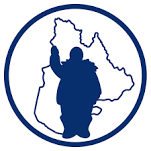 Makivik is a corporate entity with a mandate to “protect the rights, interests and financial compensation provided by the 1975 James Bay and Northern Quebec Agreement.” One of Makivik’s Corporate Objectives is: “to relieve poverty, to promote the welfare, advancement, and education of the Inuit.” (Inuit of Nunavik)
Makivik is a corporate entity with a mandate to “protect the rights, interests and financial compensation provided by the 1975 James Bay and Northern Quebec Agreement.” One of Makivik’s Corporate Objectives is: “to relieve poverty, to promote the welfare, advancement, and education of the Inuit.” (Inuit of Nunavik)
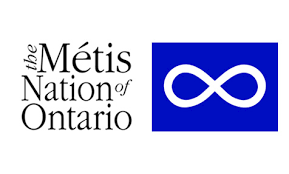 Métis Nation of Ontario (MNO) represents Métis people and communities in Ontario.
Métis Nation of Ontario (MNO) represents Métis people and communities in Ontario.
- MNO is a partner in Ontario’s Joint Working Group to End Violence Against Aboriginal Women
- In 2014, MNO passed a resolution to call for a national inquiry into missing and murdered Indigenous women. The President of the MNO drew a connection to the MMIWG and historic policies that have “traumatized generations of Indigenous peoples.” MNO believes the underlying, systemic issues need to be addressed.
- In 2014 MNO adopted a declaration to end violence against Aboriginal women
- MNO is a signatory to the Strategic Framework to End Violence Against Aboriginal Women (see reports section for a complete list of all reports)
- MNO has come out in support of the Ontario Provincial government’s long-term strategy to end violence against women. Some of the reasons they cited for supporting the strategy include that it incorporates some of the TRC’s Call to Action; that there is a commitment to work with Indigenous partners; and that it promotes safety and healing and addresses root causes of violence.
![]() Ontario Federation of Indigenous Friendship Centres is a provincial organization that represents member Friendship Centres in Ontario. With the Ontario Native Women’s Association (ONWA) created the Strategic Framework to End Violence Against Aboriginal Women. (see reports section for a complete list of all reports) The Framework addresses “eight specific areas for change: research, legislation, policy, programs, education, community development, leadership, and accountability”.
Ontario Federation of Indigenous Friendship Centres is a provincial organization that represents member Friendship Centres in Ontario. With the Ontario Native Women’s Association (ONWA) created the Strategic Framework to End Violence Against Aboriginal Women. (see reports section for a complete list of all reports) The Framework addresses “eight specific areas for change: research, legislation, policy, programs, education, community development, leadership, and accountability”.
 Quebec Native Women Inc. (QNW) is a provincial organization that represents “women from the First Nations in Quebec and Aboriginal women living in urban areas.” QNW has advocated for a national inquiry into MMIWG. They emphasize the government’s responsibilities as outlined in the United Nations Declaration for the Rights of Indigenous Peoples. QNW also emphasizes the need to understand the systemic issues that lead to violence against Aboriginal women and girls. On March 20, 2014- Quebec Native Women (QNW) presents their response to the report submitted by the Special Committee on Violence against Indigenous Women.
Quebec Native Women Inc. (QNW) is a provincial organization that represents “women from the First Nations in Quebec and Aboriginal women living in urban areas.” QNW has advocated for a national inquiry into MMIWG. They emphasize the government’s responsibilities as outlined in the United Nations Declaration for the Rights of Indigenous Peoples. QNW also emphasizes the need to understand the systemic issues that lead to violence against Aboriginal women and girls. On March 20, 2014- Quebec Native Women (QNW) presents their response to the report submitted by the Special Committee on Violence against Indigenous Women.
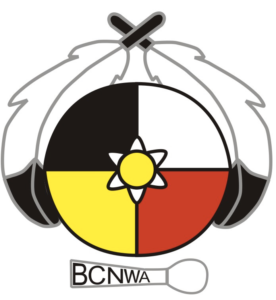 British Columbia Native Women’s Association is a member of NWAC and has a “collective goal to enhance, promote, and foster the social economic, culture and political well being of First Nations, Inuit and Metis women.”
British Columbia Native Women’s Association is a member of NWAC and has a “collective goal to enhance, promote, and foster the social economic, culture and political well being of First Nations, Inuit and Metis women.”
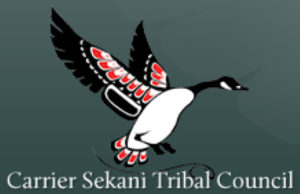 The Carrier Sekani Tribal Council (CSTC) is an Association of eight First Nations on the west coast. CSTC has been quite involved in advocacy related to MMIWG. In 2012 they called for an end to the Missing Women’s Commission of Inquiry, which they considered to be flawed. CSTC has spoken out about systemic racism within the RCMP. Has oversight over Carrier Sekani Family Services (CSFS) and Highway of Tears Initiative.
The Carrier Sekani Tribal Council (CSTC) is an Association of eight First Nations on the west coast. CSTC has been quite involved in advocacy related to MMIWG. In 2012 they called for an end to the Missing Women’s Commission of Inquiry, which they considered to be flawed. CSTC has spoken out about systemic racism within the RCMP. Has oversight over Carrier Sekani Family Services (CSFS) and Highway of Tears Initiative.
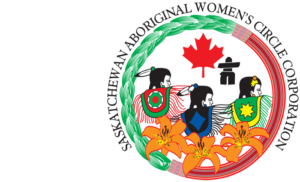 Saskatchewan Aboriginal Women’s Circle Corporation (SAWCC) joins Aboriginal women in Saskatchewan by taking a leadership role in responding to and addressing issues of interest and concern to
Saskatchewan Aboriginal Women’s Circle Corporation (SAWCC) joins Aboriginal women in Saskatchewan by taking a leadership role in responding to and addressing issues of interest and concern to
Aboriginal women and their families. SAWCC delivers responsive, effective, and valued resources, education,
programming and advocacy at the local, provincial, national and international levels.
![]() Manitoba Moon Voices Inc (MMV) supports Aboriginal women in Manitoba and has identified MMIWG as an area of focus.
Manitoba Moon Voices Inc (MMV) supports Aboriginal women in Manitoba and has identified MMIWG as an area of focus.
Indigenous Grassroots Groups
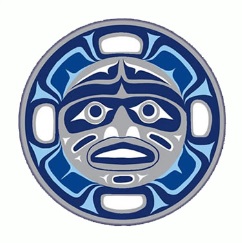 Sisters in Spirit (SIS) is supported by NWAC and originally funded by Status of Women Canada (SWC). SIS was de-funded in 2010. NWAC is a co-organizer (with Sisters in Spirit) of the annual Sisters in Spirit vigil, an annual vigil held on October 4 to honour the lives of missing and murdered Indigenous women and girls. The vigils began in 2006 with 11 vigils and grew to 216 vigils in 2014.
Sisters in Spirit (SIS) is supported by NWAC and originally funded by Status of Women Canada (SWC). SIS was de-funded in 2010. NWAC is a co-organizer (with Sisters in Spirit) of the annual Sisters in Spirit vigil, an annual vigil held on October 4 to honour the lives of missing and murdered Indigenous women and girls. The vigils began in 2006 with 11 vigils and grew to 216 vigils in 2014.
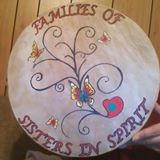 Families of Sisters in Spirit (FSIS) is a volunteer organization led by families of missing and murdered Indigenous women and girls. The organization started in response to the Federal Government’s decision to de-fund the Sisters in Spirit initiative in 2010. FSIS engages the community in events to remember missing and murdered Indigenous women and in support of the families. According to their website, FSIS is a “grassroots anti-colonial, self-determined, community led action and responses to missing and murdered Indigenous women.” FSIS co-organizes (with NWAC) the Sisters in Spirit vigil, held annually on October 4th to honour the lives of missing and murdered Indigenous women and girls. The vigil began in 2006 with 11 vigils and has grown to 216 vigils in 2014. FSIS is one of fourteen organizations to sign a 2011.
Families of Sisters in Spirit (FSIS) is a volunteer organization led by families of missing and murdered Indigenous women and girls. The organization started in response to the Federal Government’s decision to de-fund the Sisters in Spirit initiative in 2010. FSIS engages the community in events to remember missing and murdered Indigenous women and in support of the families. According to their website, FSIS is a “grassroots anti-colonial, self-determined, community led action and responses to missing and murdered Indigenous women.” FSIS co-organizes (with NWAC) the Sisters in Spirit vigil, held annually on October 4th to honour the lives of missing and murdered Indigenous women and girls. The vigil began in 2006 with 11 vigils and has grown to 216 vigils in 2014. FSIS is one of fourteen organizations to sign a 2011.
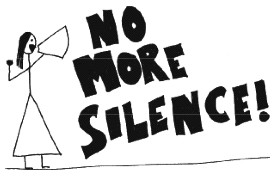 No More Silence is a network that supports the work being done to stop the murders and disappearances of Indigenous women. There are concerns that families’ questions won’t be answered, particularly related to role of police in missing and murdered Indigenous women cases. Demanding transparency from police. Quoted in this CBC article.
No More Silence is a network that supports the work being done to stop the murders and disappearances of Indigenous women. There are concerns that families’ questions won’t be answered, particularly related to role of police in missing and murdered Indigenous women cases. Demanding transparency from police. Quoted in this CBC article.
 Carrier Sekani Family Services Highway of Tears Initiative was created to support the implementation of recommendations that came out of the Highway of Tears Symposium held in 2006. (see reports section for a complete list of all reports)
Carrier Sekani Family Services Highway of Tears Initiative was created to support the implementation of recommendations that came out of the Highway of Tears Symposium held in 2006. (see reports section for a complete list of all reports)
Drag the Red was created by community members in Winnipeg who volunteer their time to drag the Red River for traces of missing and murdered Indigenous people. This group was created after Tina Fontaine who was murdered was found in the Red River. Read article.
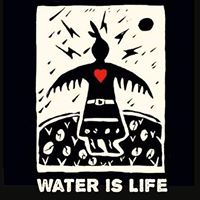 The resurgence of the Bear Clan Patrol in Winnipeg is in response to their community’s need to protect its women and children. The goals of the Patrol can be stated as being the restoration and maintenance of harmony within the community by promoting and providing safety, conflict resolution, mobile witnessing and crime prevention, maintaining a visible presence on the streets, providing an early response to situations, as well as providing rides, escorts and referrals. The Bear Clan does not arrest people, it does not go into people’s homes unless invited, or otherwise take action that is more appropriately the responsibility of the police. Read article.
The resurgence of the Bear Clan Patrol in Winnipeg is in response to their community’s need to protect its women and children. The goals of the Patrol can be stated as being the restoration and maintenance of harmony within the community by promoting and providing safety, conflict resolution, mobile witnessing and crime prevention, maintaining a visible presence on the streets, providing an early response to situations, as well as providing rides, escorts and referrals. The Bear Clan does not arrest people, it does not go into people’s homes unless invited, or otherwise take action that is more appropriately the responsibility of the police. Read article.
Walk4Justice program attempts to fill in the gap in communities where there are no services available to families of missing and murdered Aboriginal women. The W4J staff visit families of victims and provide them with referrals made available by the programs networking with Canada-wide services and programs. Programs are developed that involve families, policing and services.
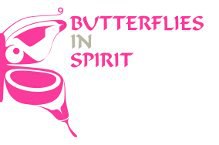 Butterflies in Spirit is a nationally acclaimed non-profit organization made up mostly of family members of the victims and allies. Lorelei Williams created the organization to commemorate the female victims of violence in Vancouver and across Canada. Starting with the image of her missing aunt, Belinda Williams, and then her cousin, Tanya Holyk. The images of these and other missing and murdered women are highlighted; worn on t-shirts in performance, the dancers pay respect to the victims in the hopes of instigating awareness for these issues. Watch video. Read article.
Butterflies in Spirit is a nationally acclaimed non-profit organization made up mostly of family members of the victims and allies. Lorelei Williams created the organization to commemorate the female victims of violence in Vancouver and across Canada. Starting with the image of her missing aunt, Belinda Williams, and then her cousin, Tanya Holyk. The images of these and other missing and murdered women are highlighted; worn on t-shirts in performance, the dancers pay respect to the victims in the hopes of instigating awareness for these issues. Watch video. Read article.
Other Organizations
 Women’s Legal Education and Action Fund (LEAF) is a non-profit organization dedicated to ensuring the Canadian courts protect the rights guaranteed to women and girls in the Constitution.
Women’s Legal Education and Action Fund (LEAF) is a non-profit organization dedicated to ensuring the Canadian courts protect the rights guaranteed to women and girls in the Constitution.
- Part of the Legal Strategy Coalition on Violence Against Indigenous Women (LSC)
- One of five national organizations to sign an open letter in January 2016 calling on the federal government for a national and comprehensive inquiry.
- Has expressed concern about level of involvement of Federal Ministers in the pre-inquiry and expressed a need that the inquiry be an “independent inquiry” as many see the Canadian government as complicit in some of the root causes of the MMIWG. Quoted in this CBC article.
Legal Strategy Coalition on Violence Against Indigenous Women (LSC) is a national ad hoc coalition formed in 2014. The LSC is engaged in legal advocacy and research to urgently address the critical issue of missing and murdered Indigenous women (MMIWG).
- LSC supported the call for a national inquiry into MMIWG.
- Engages in research and advocacy related to MMIWG.
- Some of their concerns: need to examine why there has been resistance by governments to implement the over 700 previous recommendations for stopping violence against Indigenous women and girls; need for a clear commitment from government to implement findings; families and survivors of MMIWG need to be included in the process – from the design stages to the implementation stage. In 2014 LSC developed two research reports that outline previous recommendations related to MMIWG. (see reports section for a complete list of all reports)
 KAIROS is an ecumenical social justice based organization. KAIROS has indicated support for the inquiry and is encouraged by the support it has been given by the Federal government including assigning it three Federal Ministers. Also encouraged by the scope of those who will be included in the inquiry – families of victims as well as provincial, territorial and grassroots Indigenous organizations. KAIROS acknowledges the importance of the inquiry to address the systemic sexism and racism that is at the root of violence against Indigenous women in Canada.
KAIROS is an ecumenical social justice based organization. KAIROS has indicated support for the inquiry and is encouraged by the support it has been given by the Federal government including assigning it three Federal Ministers. Also encouraged by the scope of those who will be included in the inquiry – families of victims as well as provincial, territorial and grassroots Indigenous organizations. KAIROS acknowledges the importance of the inquiry to address the systemic sexism and racism that is at the root of violence against Indigenous women in Canada.
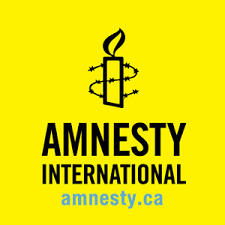 Amnesty International Canada is an international organization with a goal to end human rights abuses and demand justice for those who have been violated.
Amnesty International Canada is an international organization with a goal to end human rights abuses and demand justice for those who have been violated.
- The No More Stolen Sisters Campaign called for a national response to MMIWG in Canada to include: a national action plan to end violence against women; a national public inquiry into MMIWG; and regular, comprehensive collection of data. Their emphasis is to understand the root causes of violence and include culturally appropriate ways to address the violence. They also call for the inquiry to include the voices of Indigenous women and girls and to include government and police accountability in the response.
- Canada Stolen Sisters: A Human Rights Response to Discrimination and Violence Against Indigenous Women in Canada (Beverly Jacobs, 2004 – Full Report)
- Stolen Sisters: Discrimination and Violence Against Indigenous Women in Canada: A Summary of Amnesty International’s Concerns (Beverly Jacobs, 2004) (see reports section for a complete list of all reports)
 Canadian Feminist Alliance for International Action (FAFIA) co-hosted a symposium in January 2016, with NWAC and Canadian Journal of Women and the Law (CJWL) to discuss the design of the inquiry. Twenty-two recommendations (see reports section for a complete list of all reports) came out of the symposium that included a comprehensive approach to understanding the gendered and racialized violence against indigenous women including looking at the underlying social and economic inequality as well as failure in the police and justice system; ensuring that the inquiry has a national lens and addresses federal, provincial and territorial policies; and using a Human Rights lens that ensure implementation of recommendations from previous inquiries.
Canadian Feminist Alliance for International Action (FAFIA) co-hosted a symposium in January 2016, with NWAC and Canadian Journal of Women and the Law (CJWL) to discuss the design of the inquiry. Twenty-two recommendations (see reports section for a complete list of all reports) came out of the symposium that included a comprehensive approach to understanding the gendered and racialized violence against indigenous women including looking at the underlying social and economic inequality as well as failure in the police and justice system; ensuring that the inquiry has a national lens and addresses federal, provincial and territorial policies; and using a Human Rights lens that ensure implementation of recommendations from previous inquiries.
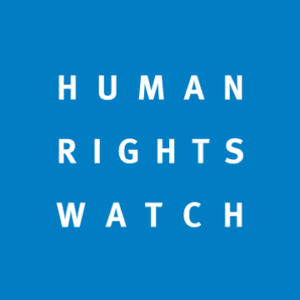 Human Rights Watch is known for its accurate fact-finding, impartial reporting, effective use of media, and targeted advocacy, often in partnership with local human rights groups. Most recent blog post: Dispatches: Abuse of Canada’s Indigenous Women Should be Properly Investigated – Upcoming Inquiry Needs to Probe All Allegations, Including Involvement of Police. Report on Police conduct in northern B.C., 2013: Those Who Take Us Away: Abusive Policing and Failures in Protection of Indigenous Women and Girls in Northern British Columbia, Canada. (see reports section for a complete list of all reports)
Human Rights Watch is known for its accurate fact-finding, impartial reporting, effective use of media, and targeted advocacy, often in partnership with local human rights groups. Most recent blog post: Dispatches: Abuse of Canada’s Indigenous Women Should be Properly Investigated – Upcoming Inquiry Needs to Probe All Allegations, Including Involvement of Police. Report on Police conduct in northern B.C., 2013: Those Who Take Us Away: Abusive Policing and Failures in Protection of Indigenous Women and Girls in Northern British Columbia, Canada. (see reports section for a complete list of all reports)


